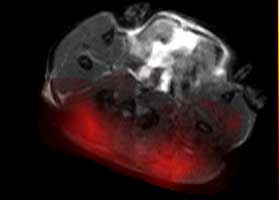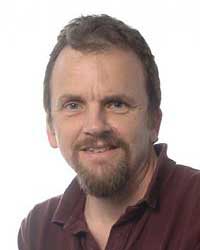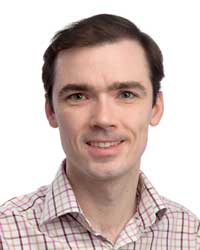
Businesses in Cambridge are being urged to help beat cancer by supporting a ground-breaking research project that’s taking place within the CRUK Cambridge Centre.
Scientists and doctors in Cambridge, who are funded by Cancer Research UK, are testing a revolutionary imaging technique at Addenbrooke’s that could show whether a cancer drug is working or not within a day or two of treatment starting.
This is exciting, innovative research that is expensive to carry out. That’s why Cancer Research UK and the Cambridge Independent are joining forces to set the city’s businesses a challenge – can we raise £100k in 12 months to fund this local research?
The £100k Rapid Scan Appeal is a chance for you and your employees to get behind something linked directly to cancer research in Cambridge. The lead researchers on the trial are Professor Kevin Brindle and Dr Ferdia Gallagher. Since 2013, they have been working together to develop a new type of MRI scan that can be used to spot when cancers first start responding to treatment.Professor Brindle and Dr Gallagher, lead the Centre's Cancer Imaging Programme were the first in Europe to test this ground-breaking technique in patients, and they are continuing their work at Addenbrooke’s Hospital right now. Their imaging research* involves patients who are being treated for a wide range of cancer types.
The money raised through this fundraising campaign will be used to fund a research project which aims to determine if a breast cancer drug is working for patients.
It’s thought the drug will work for some patients, but not others. By using this new imaging technique, the research group aims to determine as quickly as possible which patients it does work for.
The funding would cover the cost of materials, research in the lab and help to develop this revolutionary imaging technique.
Heidi Connell, Cancer Research UK’s Senior Local Fundraising Manager, said: “This is a one off opportunity to support a research project which could have a big impact on those around you and on future generations.
“We are very excited to have this research going on in Cambridge. If it’s successful, this new imaging technique could change how we treat patients in the future.
“Improvements and developments in technology like this have the potential to give each cancer patient a better chance of surviving their disease. It’s this type of intelligent, innovative thinking that’s going to help us accelerate progress and beat cancer sooner. So please get behind the appeal and support this local research.”
Right now, doctors use the size of a tumour to determine if a treatment is working or not. If it stops growing or starts shrinking, then the treatment’s classified as working. If the tumour doesn’t shrink or stop growing, treatment’s classed as having failed.
But Professor Brindle and Dr Gallagher don’t believe this is the most accurate or fastest way of monitoring if treatment is working. Instead, they believe measuring the chemical activity of tumour cells would be better.
This is because cancer cells that are responding to treatment shut down and die quickly, meaning their chemical activity is lower than cells that aren’t responding to treatment.
Currently, patients must wait for weeks or months to find out if a treatment is working or not. But doctors believe this wait is too long.
The hope is that the new technique will speed up this process and ultimately, be used to help more people with all types of cancer get the treatment that’s right for them faster.
It could also be used to identify which patients should stop taking drugs that aren’t working for them, allowing them to try different ones and receive the best treatment for their cancer sooner.
Professor Kevin Brindle, co-lead based at the Cancer Research UK Cambridge Institute, said: “We’re very excited to be one of the first groups to test this technique in patients and we hope that it will soon improve treatment – and put an end to giving patients treatments that don’t work for them, along with the unpleasant side effects that accompany them. Each person’s cancer is different and this technique could help us tailor a patient’s treatment faster than ever.”
Dr Ferdia Gallagher, co-lead also funded by Cancer Research UK and based at the Department of Radiology at the University of Cambridge, said: “It’s fantastic that we are able to try this technique in patients. We hope this will progress the way cancer treatment is given and make therapy more effective for patients in the future. This new technique could potentially mean that doctors will find out much more quickly if a treatment is working for their patient instead of waiting to see if a tumour shrinks.”For more information on how to get involved and how your business will benefit, please email: laura.holland@cancer.org.uk
To support the trial please visit: https://www.justgiving.com/fundraising/cambridgeresearchproject
*The project is being led jointly by Professor Kevin Brindle (Cancer Research UK Cambridge Institute) and Dr Ferdia Gallagher (Department of Radiology) and involves a large number of co-investigators and collaborators in the University of Cambridge and at Addenbrooke’s hospital including Professor David Lomas (Radiology), Professor Ian Wilkinson (Department of Medicine), Dr Bristi Basu (Oncology) and Mrs Anita Chhabra (Pharmacy). The facility and clinical trials are funded and supported by the Wellcome Trust, Cancer Research UK, Addenbrooke’s Charitable Trust, the Cambridge Cancer Centre, Cambridge University Hospitals NHS Foundation Trust, GE Healthcare and the University of Cambridge. The research is also funded by the Wellcome Trust strategic award.

















